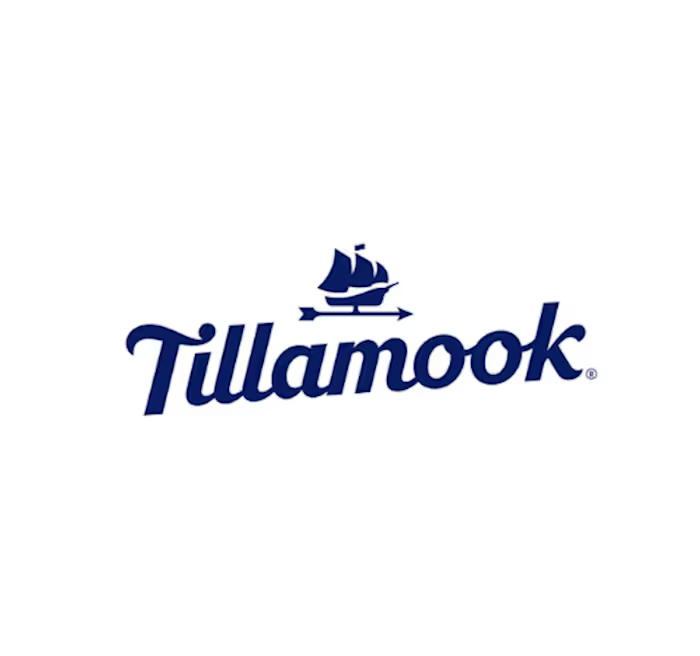
Tillamook
From Overwhelming Complexity to Streamlined Packaging Compliance: How Tillamook Solved EPR While Saving $100K


As Extended Producer Responsibility regulations are beginning to roll out across multiple states, CPG brands face a critical decision: build internal expertise or partner with specialists. Tillamook's experience shows how the right EPR compliance partner can eliminate regulatory burden and give teams their time back.
Extended Producer Responsibility (EPR) represents one of the most significant shifts in packaging regulation in decades. These laws require companies that sell packaged products to take financial responsibility for the end-of-life management of their packaging materials. What started with Oregon in 2025 has rapidly expanded to Colorado, California, and soon to be other states, each with unique requirements, fee structures, and reporting deadlines.
For brands like Tillamook, EPR compliance isn't optional. With EPR fees reaching substantial amounts for many brands, getting compliance wrong can cost hundreds of thousands of dollars in unnecessary charges.
The Challenge: When "We've Got This" Becomes "We Need Help"
Steve Marko, who leads R&D and packaging development at Tillamook, initially felt confident about handling EPR compliance internally. As an Oregon-based company, Tillamook had advantages: close relationships with state regulators, existing sustainability data systems, and packaging expertise.
The company felt pretty good and even went so far as reporting on their own for Oregon's initial requirements, Marko explains. The company had already built packaging specifications into their third-party software for sustainability tracking, giving them what seemed like a head start.
But confidence quickly turned to concern as EPR regulations expanded beyond Oregon.
"As the other states started rolling in, the regulations were going to be very different in every state. It very quickly spiraled and became overwhelming—I need to focus on innovation and keeping the business running."
The reality hit hard: "I don't have a staff to be reading 400-page new plans for every state."
Understanding the EPR Landscape: Why Internal Management Falls Short
EPR compliance involves far more than basic reporting. Companies must navigate:
- State-specific requirements: Each state has different packaging categories, fee structures, and submission formats
- Complex material classifications: A "cup" versus a "tub" can mean a difference of 60 cents per pound in fees
- Volume tracking challenges: Accurately reporting sales by state, especially for companies with complex distribution networks
- Ongoing regulatory changes: New requirements, fee adjustments, and deadline modifications require constant monitoring
For Tillamook, the breaking point came when they realized their original 3rd party software
"really wasn't working that well because it requires you to change your entire bill of materials for every time you want to run a report."
The Search for Solutions: Why rePurpose Stood Out
Marko initially sought simple consultation—someone to provide regulatory updates and strategic guidance while Tillamook handled data management internally. The company evaluated several software options, along with traditional consulting approaches.
rePurpose distinguished itself by offering an integrated solution that combined regulatory expertise with comprehensive data management. Three factors proved decisive:
Comprehensive Service Integration
"rePurpose would cover the consultation. rePurpose would cover the database recording. rePurpose would be able to compare state to state and look at all those things. And so now I wouldn't have to go out and have a separate consultant contract and a software contract, and that it would be merged together as one."
Established Sustainability Expertise
"rePurpose had a very long history in the stewardship and sustainability realm. This wasn't just a company jumping on the EPR opportunity—they had real expertise."
Flexible Data Integration
"rePurpose would figure out how to customize it to work with our existing data. It didn't have to be in perfect form already, which was really helpful."
Implementation Results: Weeks of Work Completed in Days
The transformation began with Tillamook's Colorado filing—their first EPR submission using rePurpose's platform.
Database Development and Setup
What Marko expected to be a complex, time-intensive process became remarkably streamlined:
"We sent rePurpose our existing spreadsheet with basic product information. They provided some feedback on what needed to be adjusted for proper SKU categorization, then took it from there. Within three to four days, they came back with 80% of our database structure already built."
The time savings were substantial. When asked how long the equivalent work would have taken internally, Marko estimated at least a couple of weeks, representing significant opportunity cost for his team.
Expert Classification and Optimization
Beyond basic data entry, rePurpose's regulatory expertise identified opportunities for fee reduction through proper material classification:
"rePurpose identified better ways to classify our materials and calculate component weights. They significantly improved our approach."
Professional Service Experience
The collaboration impressed Tillamook's team with its professionalism and accommodation:
"We were impressed with the professionalism of the rePurpose team. Some companies might feel nervous about sharing incomplete data, but rePurpose made it easy. They said 'let's work with what you have, and we'll get it right.' It was comfortable and straightforward to work with them."
Quantifiable Business Impact: $100,000 in Immediate Savings
The most dramatic validation of rePurpose's value came through an unexpected source: correcting Tillamook's original Oregon filing.
After working with rePurpose to build their Colorado database, Tillamook realized their initial Oregon submission contained classification errors. rePurpose conducted a comprehensive review and reclassification of materials, resulting in approximately $100,000 in EPR fee savings for Oregon alone.
"rePurpose reviewed our Oregon filing and reclassified our materials correctly. The result was about $100,000 in EPR fee savings for our Oregon credit. The partnership has already paid for itself."
This correction addressed common classification mistakes that many brands make, such as:
- Misunderstanding plastic categories ("it should be called a tub, not a cup" - a difference of 60 cents per pound)
- Incorrectly calculating film structures and components
- Misapplying corrugated packaging requirements
Operational Transformation: Time Savings and Simplified Management
Beyond immediate cost savings, rePurpose transformed EPR compliance from a major operational burden to a streamlined background process.
Time Savings and Resource Allocation
Marko projects significant ongoing time savings:
"I expect to get probably four to five hours of my week back. I don't have to attend every single webinar and build PowerPoints to keep my team updated on where we stand. We can have rePurpose handle it."
This represents more than just efficiency—it enables focus on core business activities.
Simplified Ongoing Management
With the database established and processes in place, ongoing compliance becomes straightforward:
"Now it's plug and play. I just need to get volume data submitted to rePurpose and it goes directly into the database."
Regulatory Confidence
Perhaps most importantly, Tillamook gained confidence in their compliance accuracy:
"We're not attending all those regulatory webinars anymore because we're confident rePurpose is staying current on requirements for us."
The Partnership Advantage: Expertise Plus Technology
rePurpose's integrated approach addresses the core challenge facing brands: the need for both regulatory expertise and scalable technology solutions.
Regulatory Knowledge: Deep understanding of state-specific requirements, fee structures, and classification nuances that can significantly impact costs.
Technology Platform: Robust database management that accommodates complex product portfolios and multi-state reporting requirements.
Data Integration: Flexible systems that work with existing company data structures rather than requiring complete overhauls.
Ongoing Support: Continuous monitoring of regulatory changes and proactive communication about impacts.
Looking Forward: Streamlined Compliance for CPG Brands
As EPR regulations continue expanding to additional states, Tillamook's partnership with rePurpose positions them for efficient scaling. The foundation built for Colorado can accommodate new state requirements without starting from scratch.
Key Takeaways for CPG Brands
Tillamook's experience offers several important lessons for brands facing EPR compliance:
Start with Expertise: Regulatory complexity makes expert guidance essential, not optional. Classification mistakes can cost tens of thousands of dollars.
Integrate Rather Than Fragment: Combined consulting and technology solutions prove more efficient than managing separate vendor relationships.
Focus on Core Business: Outsourcing compliance allows internal teams to focus on product development, innovation, and growth rather than regulatory management.
Plan for Scale: As EPR expands to more states, having scalable systems and processes becomes increasingly valuable.
Measure ROI: Expert EPR management can pay for itself through fee optimization, time savings, and error prevention.
For CPG brands, EPR compliance represents a significant operational challenge. Companies that address it properly—with the right expertise and technology—can eliminate the regulatory burden and free up their teams to focus on what they do best: developing products and growing their business.
Ready to transform your EPR compliance from burden to advantage? Learn more about rePurpose's EPR solutions or schedule a consultation to discuss your specific compliance needs.
Other case studies





.avif)

.avif)

.avif)
